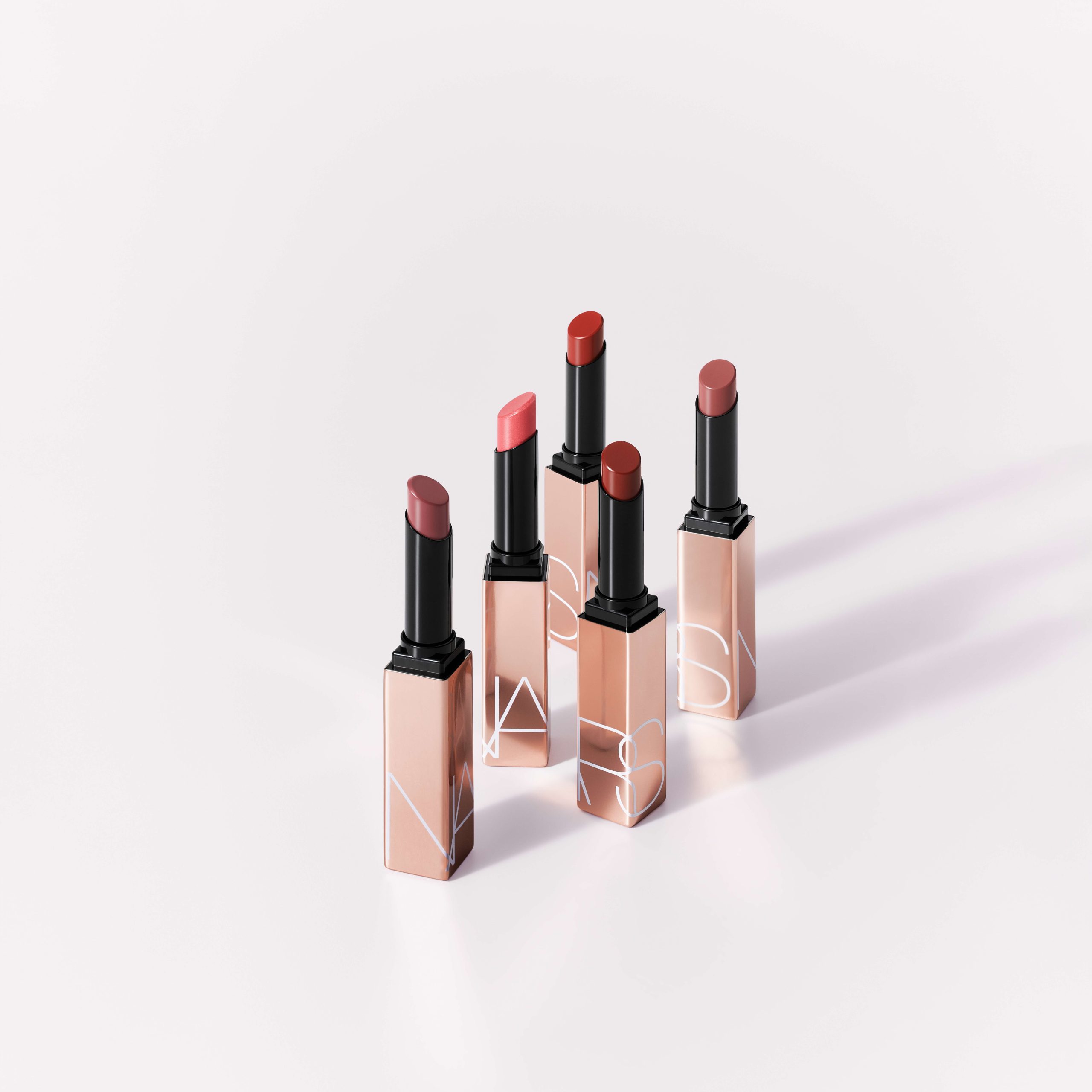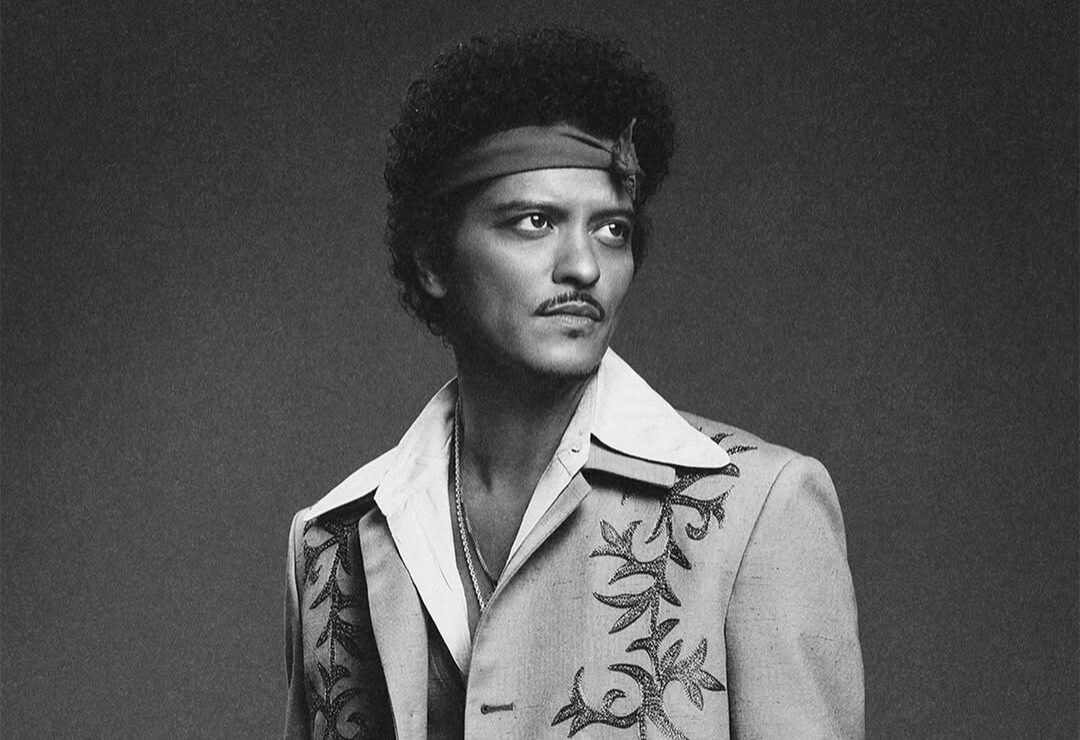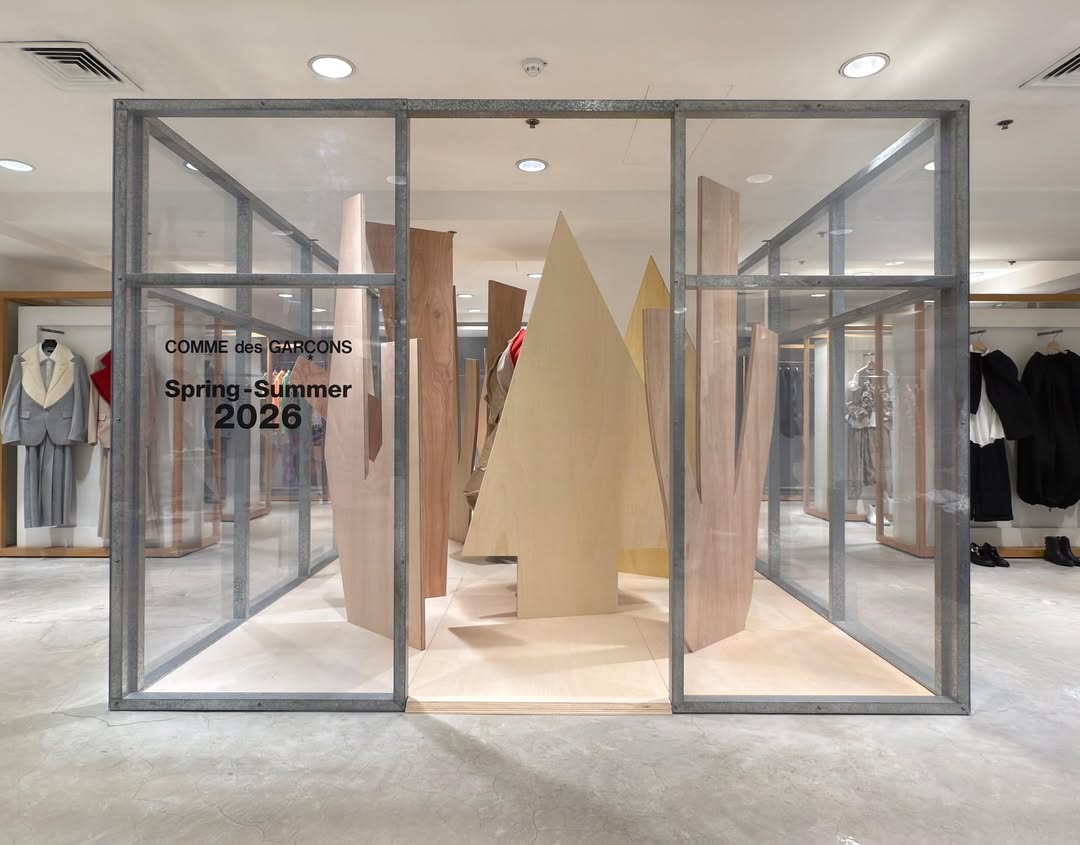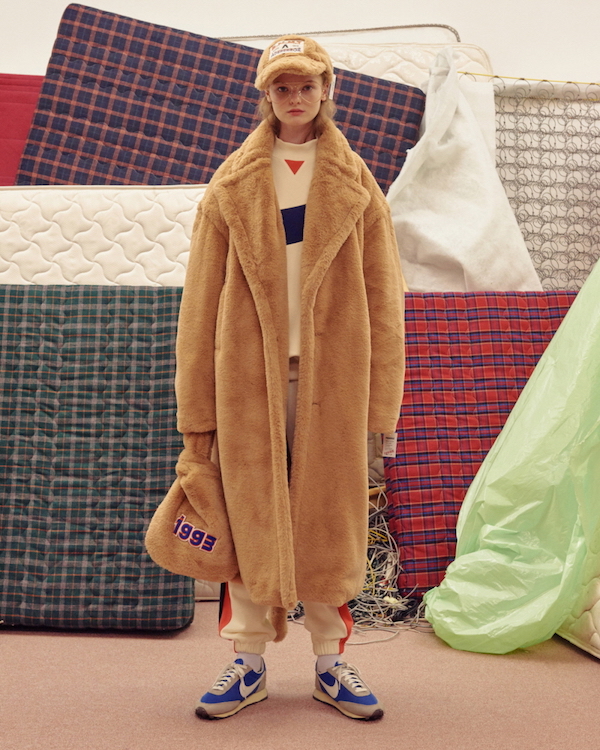
Take one part of Talking Heads’seminal 1979 album Fear of Music; two parts Aspen, the first multimedia magazine in a box from the 1960s; throw in the prescient work of Korean video artist Nam June Paik, the man who coined the term “electronic superhighway”; blend, recalibrate and repurpose as a 21st-century store; and you just might arrive at Ader Error, Korea’s coolest kid on the block.
The fashion brand is currently collaborating with I.T at Hysan Avenue in Hong Kong, with vacuum cleaners festooning windows and individual clothing items steam-pressed and vacuum-packed in transparent covers.
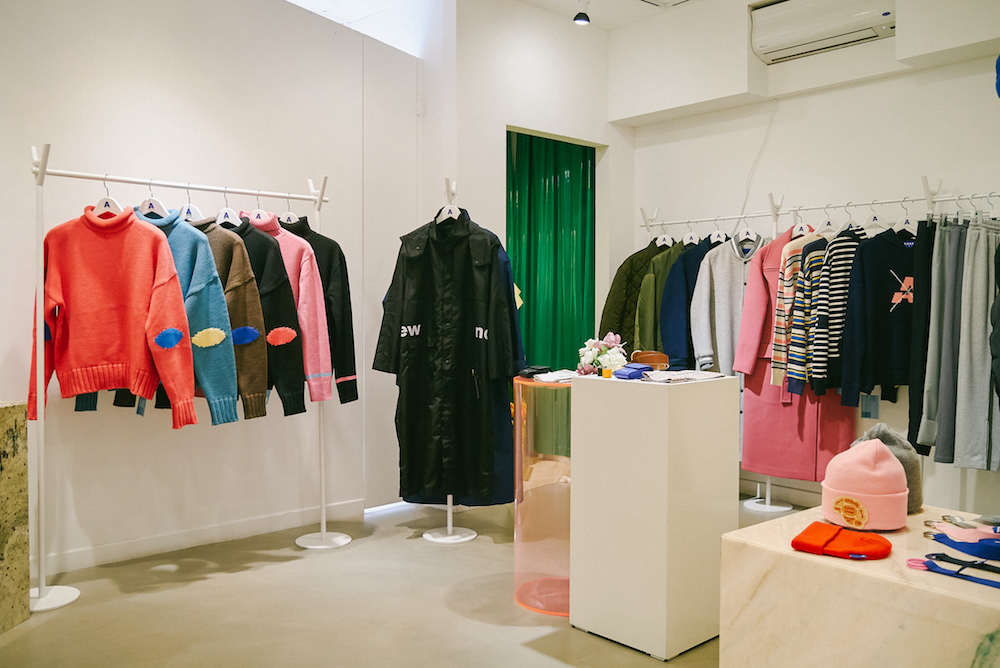
Ader has been christened Korea’s Vetements by Vogue, in a nod to the wonders performed by Georgia’s Demna Gvasalia, who’s both the creative director of Balenciaga and design head of Vetements. Except that Ader has no design head. It’s a collective, a combination of design and creative talent – all Seoul-based, from blue-ribbon schools such as Central Saint Martins, Parsons, the Fashion Institute of Technology and Esmod – basking in the glow of ambition, independence, hoodies, sweatshirts, graphic design and spoofy illustrations.
#legend’s first reaction to Ader’s work is that it feels both more contemporary and commercial than Vetements, if that’s even remotely possible. “It is not our intention or how we set out,” responds the spiffly dressed Kevin Lee, whose card says “Marketer”, speaking inside the I.T store on the evening of the collaboration’s opening. “We don’t think we compare – we do very different styling to them and a very different design.” Both Lee and
his confidante, board member Jeon Seung-hyeok, present business cards with a small hole at the top of each, making them appear much like the pricing labels on clothes.
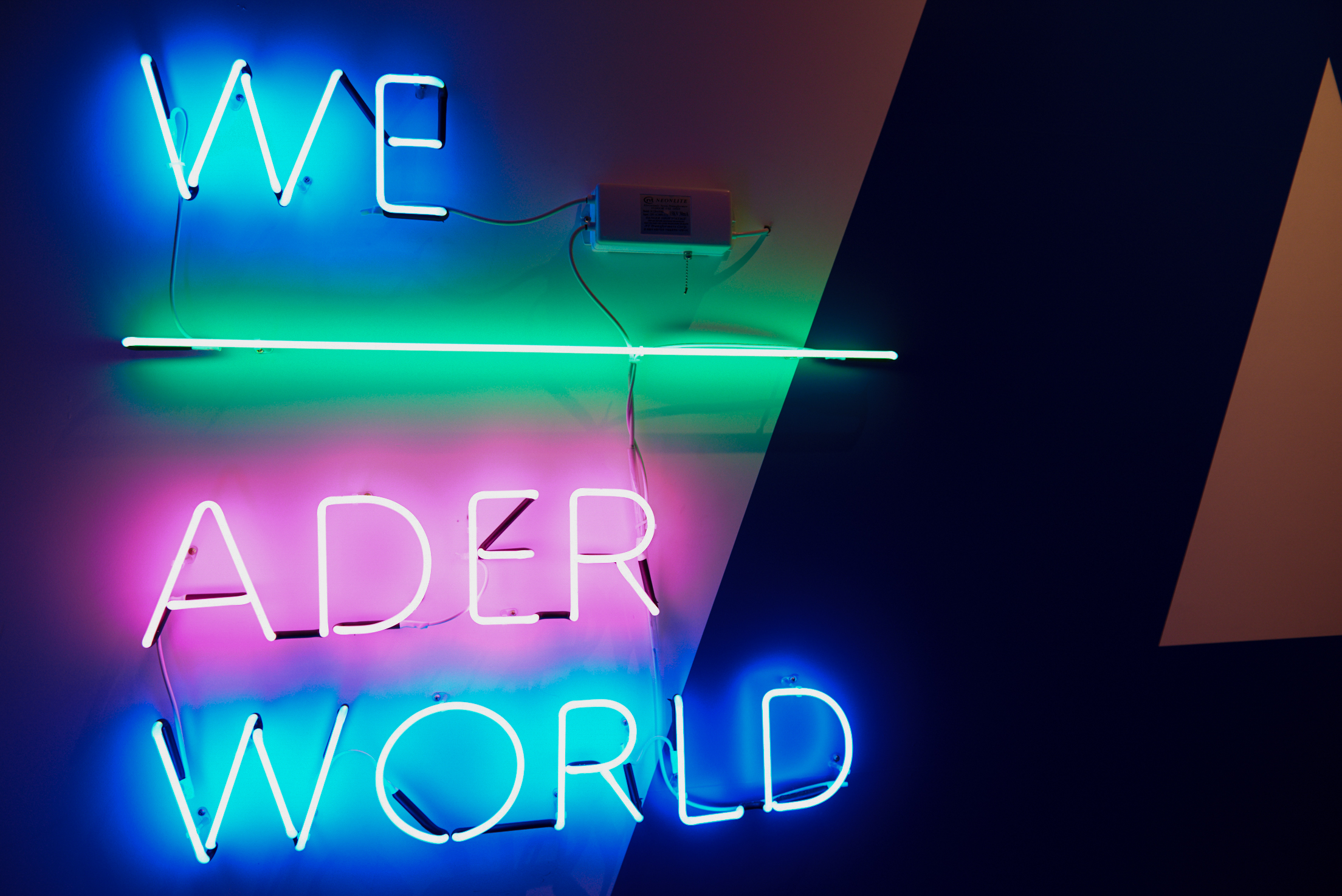
Launched in 2014, the company comprises around 20 crew, including design, sales, logistics, marketing – “all one team, but everyone can be included in the design process,” says Lee. Ader makes two collections per year, and also collaborates on four or five big annual projects. It taps into the low-cost viral publicity machine that makes today’s brands hot in the face of multimillion-dollar luxury multinationals with shows costing astronomical amounts. “Above all, we communicate with people,” says Lee.
Stumble across Ader’s headquarters, located down a back alley and up a steep hill in Seoul’s bustling university district of Hongdae, and it takes some time – as long as 15 minutes – to realise it’s not an art gallery, but a clothing store. The three-floor space is divided into themed areas and art installation areas – urinals laid out horizontally on mosaic tiled floors have plants sprouting out of them, mattresses in varying states of wear are strewn around, vintage cars (yes, life-size cars) bearing Ader number plates are stacked on top of one another. The colour of the retail space shifts from hot reds to the velvetiest Lynchian blues – a vapourwave journey of a lifetime. Mantras and words and instructions are omnipresent, including a foundry-like layout of rainbow-coloured soaps bearing taglines such as “Never Grow Up” and walls with ambiguous Insta-wails: “I like free, happiness, clean, nature, blue, man!?”
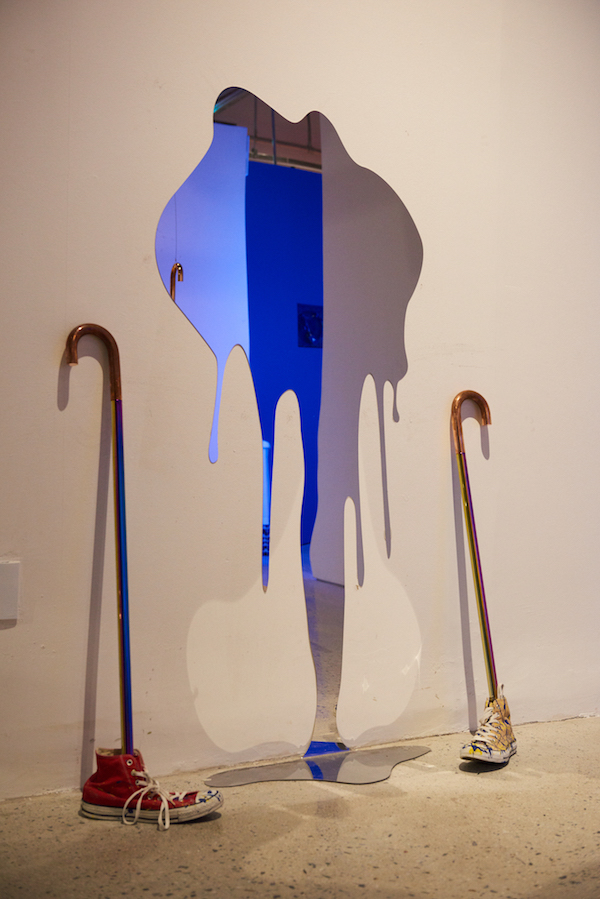
What immediately distinguishes Ader is its aesthetic ambition. “We are very interested in space and interiors,” says Lee. “Every year, we do some art collaborations for our store. Last year we collaborated with D Project Space, a young new museum. And we did our exclusive brand exhibition with the Daelim Art Foundation for four months.”
For a brand whose own tagline (or “logo”, as Lee calls it) reads “but near missed things”, Ader’s high key-ness absolutely hits the sweet spot. “We get inspiration from our daily lives, tables, chairs, everything around us,” says Lee. “But we use these products and things, and then do an editing job on them. Thus, the people who see and feel that become curious about what we can express in this process. It’s like normal things, but with new attitude.”
Take the labels on their clothes, which each bear the numbers 1, 2 or 3. Crudely assuming they might be variants of small, medium and large, Jeon clarifies and tells us that “1 is men, 2 is women and 3 is unisex.” Clear.
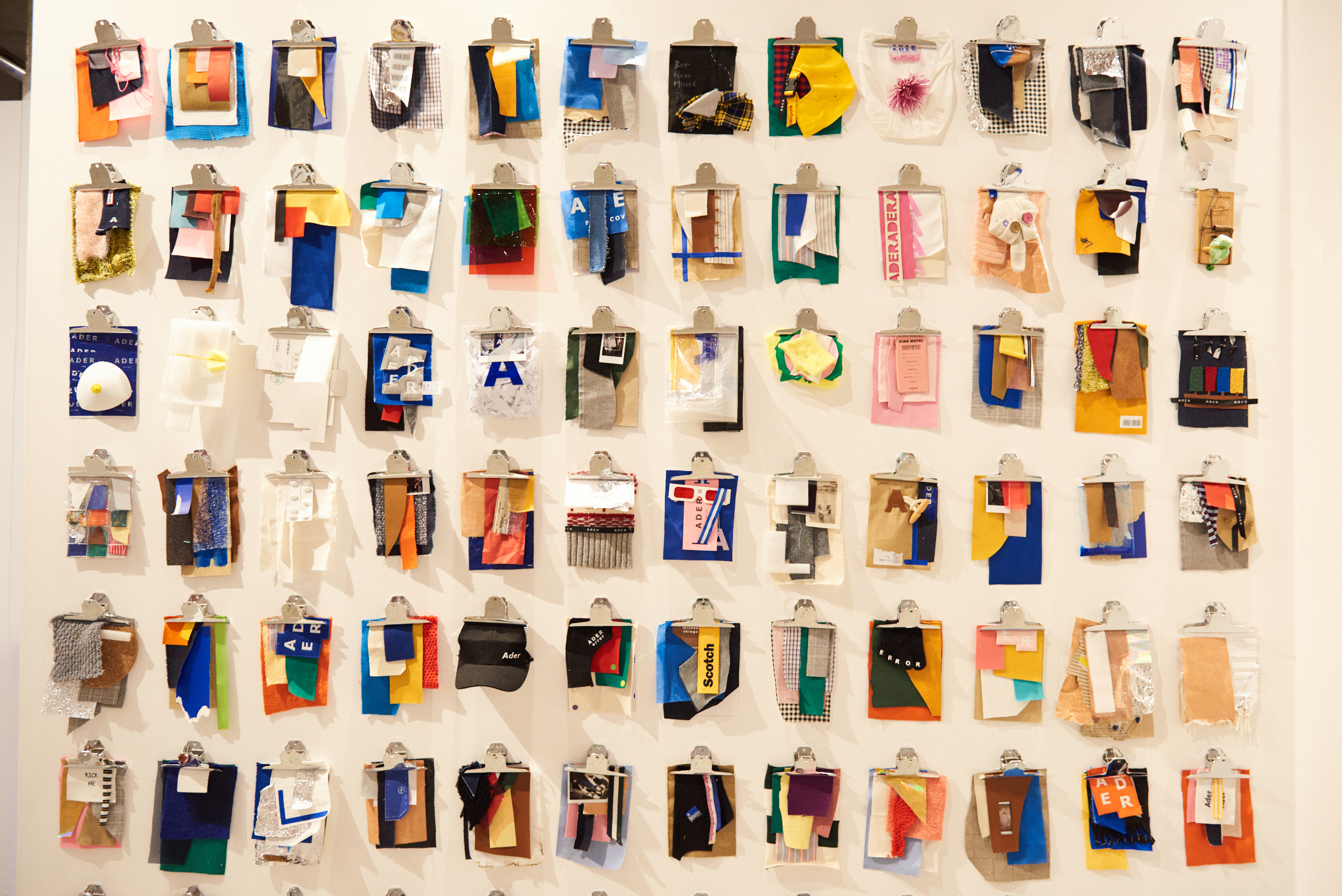
While Jeon and Lee won’t be drawn on the subject of poster boys or girls for their brand, it’s evident that Korea’s contemporary cultural explosion has been a driving force from which they’re evolving. “We can limit ourselves by giving a direct answer to that question about people who represent our brand,” says Lee. “But look at an example like [K-pop supergroup] Big Bang. Everyone in the band is interested in art, culture, expression. Choi [Seung-hyun, aka T.O.P] shows and expresses his identity with his own lifestyle in that way. That is storytelling. It’s not just something that’s ‘cool’. It’s also amazing storytelling on his part.”
Is there a message in the art they show alongside the clothes? “We don’t fix the meaning of those kinds of artworks,” says Lee. “We like to create space for people to consider – why do they do something like that? It can help open people’s minds and make a meeting point between art and them. We communicate through the artworks.” When was the last time you heard a fashion label deliver that statement?
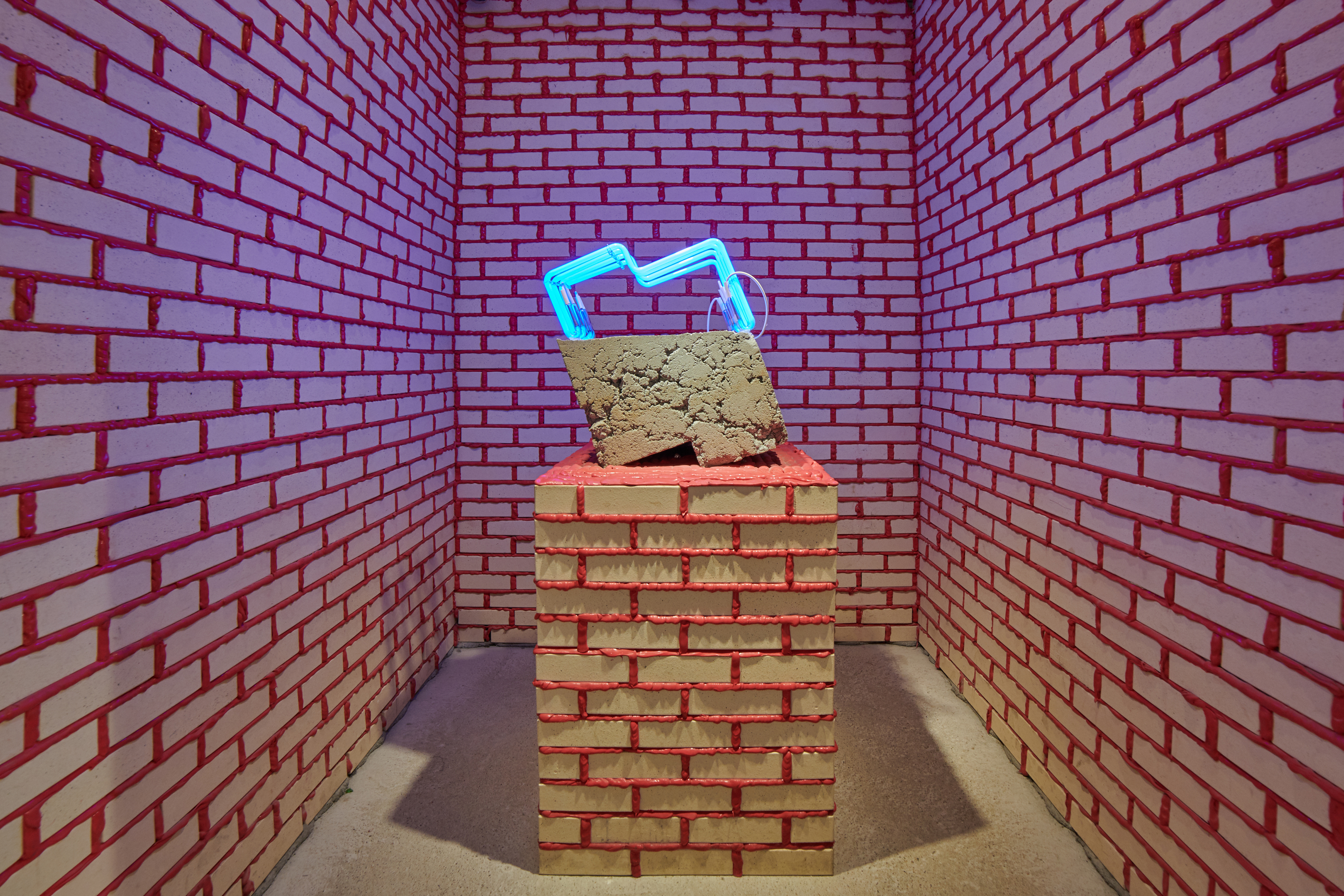
Do they see themselves as a disruptive force, something in the style of Rei Kawakubo and Issey Miyake in ’70s Japan? “We are developing in a natural way, but we think we are making a totally new paradigm,” says Lee. “We are making are own clothes in our own culture so people can get involved smoothly. That is our direction.” Oh, and they also acknowledge the influence of a certain indie film darling. “We are very interested in colours. We like Wes Anderson – his colours, his space, his props. That kind of thing can be very interesting for us. Artistic, but still very easy to understand.”
Which makes absolute sense to us. The four-year-old brand plans more pop-ups in the style of the I.T venture soon and had a sales show in Paris three weeks after we spoke with them. “We have some interesting brand collaborations coming up this year,” says Lee. “And if your readers visit our flagship store, they can surely touch, feel and experience what Ader is. That would be a totally new and exciting experience for them.”
We can vouch for that.
This feature originally appeared in the February 2018 print issue of #legend



